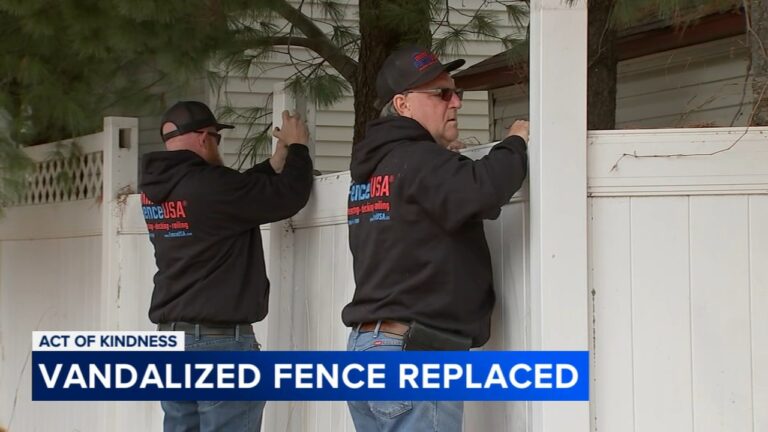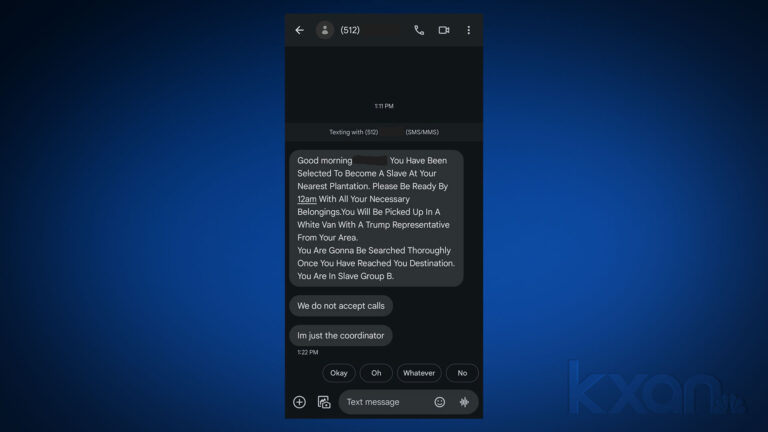Detroit Women Targeted by Racist Plantation Group Texts
Detroit Women Targeted by Racist Texts
In today’s digital age, communication knows no bounds, and while that can foster community, it can also expose ugly realities. Recently, reports emerged about a disturbing trend in Detroit, where women are being targeted by racially offensive messages that have surfaced from a so-called “plantation group.” This wave of racist texts has amplified an already tense environment, raising significant questions about the state of race relations in our communities.
Let’s dive deep into this troubling situation, examining not just the messages themselves but also the broader implications they carry for Detroit and beyond.
Understanding the Nature of the Messages
Imagine checking your phone and stumbling upon a barrage of hateful text messages. That’s what numerous women in Detroit experienced—receiving unsolicited texts filled with racist content and imagery. It’s jaw-dropping to comprehend that in the year 2023, such blatant racism is still unleashed through modern technology.
Those messages, often targeting specific individuals or groups, are not just simple hate speech. They represent a much larger issue—one steeped in historical trauma and social division. We have to ask ourselves: how is it possible that such ignorance persists in a society that prides itself on progress?
The Impact on Victims
Receiving these messages can be harrowing. Many women who have reported these texts feel not only violated but also threatened. The anonymity of the sender adds another layer of fear because the victims may wonder about the intentions behind these messages. Will they escalate? Are they part of a larger campaign against marginalized communities?
These occurrences can leave emotional scars that last long after the messages ding on their phones. Victims often experience:
- Anxiety: The constant worry about personal safety
- Isolation: Feeling alone in a world that seems to tolerate such behavior
- Distrust: Questioning the motives behind interactions, both online and offline
When you think about it, it’s not just the messages themselves that hurt; it’s the pervasive atmosphere created by such incidents.
The Role of Technology in Hate Speech
As much as we enjoy the conveniences of modern technology, it unfortunately serves a dual purpose. Social media platforms and text messaging can amplify hateful ideologies and enable perpetrators to target individuals without facing immediate consequences. It’s akin to giving a megaphone to a bully while hiding their identity.
Technology delivers information at dizzying speeds, which means that hateful messages can spread far and wide before anyone has a chance to respond. The “plantation group,” as it’s been labeled, seems to thrive in this cloak of anonymity. But what can we do about it?
Can Technology Be Part of the Solution?
Despite the negatives, technology also has the potential to support awareness and advocacy against hate. Here are some ways we can turn the tables:
-
Reporting Tools: Most social media platforms offer features to report hateful content. We must utilize them more often.
-
Awareness Campaigns: Launching campaigns to educate communities about the impact of hate can help foster understanding.
-
Community Support: Online support groups can help victims share their experiences and stand together against hate.
Historical Context: Why Racism Persists
To grasp the full impact of these racist texts, we must understand where they stem from. Racist sentiments have deep roots in American history, embedded in the very fabric of society.
The concept of a “plantation group” echoes a dark chapter in history where individuals were dehumanized and oppressed. This nostalgia for an era marked by exploitation demonstrates how some people cling to outdated and harmful perceptions, often cloaking their beliefs in a guise of superiority.
Why is This Relevant Today?
Increased visibility of systemic racism and social injustices has resulted in an awakening for many. Movements like Black Lives Matter have shone a spotlight on racial inequalities. Yet, this also triggers backlash among those uncomfortable with change. The rise of hate-filled messages can be seen as a desperate attempt to hold onto outdated beliefs.
Community Response: Standing Up to Racism
As we navigate this troubling scenario, it’s essential for communities to come together and take a stand against racism. Here’s how we can make a difference:
Educate and Advocate
Educating ourselves and those around us about the harmful impact of racism is crucial. This means engaging in conversations about race thoughtfully and intentionally. Advocacy doesn’t always require grand gestures; sometimes, it’s about spreading awareness within your own circles.
Create Safe Spaces
Developing safe spaces for open dialogue can allow individuals to express their feelings and experiences without fear of retribution. This can also encourage solidarity among those affected.
Support Local Organizations
Many local organizations are already tackling racism and inequality. Supporting these nonprofits, either financially or with volunteer work, can magnify their reach and amplify their message.
The Road Ahead: Navigating Change
As citizens of a diverse society, we have a collective responsibility to ensure that all individuals feel safe in their environments. Combating hate is an ongoing battle that requires vigilance and commitment.
While technology enables the spread of hateful content, it can also serve as a powerful tool for change. So the next time you see something hateful online or even receive such messages firsthand, remember: you have the power to report it, to educate others, and to stand up for your community.
Together, We Can Make a Difference
We stand at a crossroads where the choice is ours: let hate prevail or unite against it. This isn’t just about Detroit—it’s about defining the kind of society we want to live in.
Conclusion
The recent wave of racist messages targeting women in Detroit is a stark reminder of the hatred that still lingers in society. It highlights the urgent need for communities to come together, support one another, and advocate for change. The journey toward a more equitable society won’t happen overnight, but every step counts.
We can use technology as a weapon against hate instead of allowing it to thrive in anonymity. By educating ourselves, advocating for justice, and engaging in dialogues, we can help build stronger communities. Together, we can dismantle racism and foster a culture of empathy and respect. So let’s not remain silent; let’s turn our outrage into action.
FAQs
-
Why are racist texts still being sent in 2023?
Racism has deep historical roots, and while we’ve made progress, ignorance and prejudice unfortunately persist. Some individuals cling to outdated beliefs that may be exacerbated by socio-political discontent. -
What should I do if I receive a racist message?
Report it to the platform it came from and consider sharing your experience with trusted individuals or support organizations. Your voice can help combat hate. -
How can I educate others about racism?
Share resources such as articles, books, or documentaries about racism and its impact. Engaging in honest conversations can also be quite effective.
-
What resources are available for victims of hate speech?
Numerous organizations focus on supporting victims of hate. Resources like the Southern Poverty Law Center, local civil rights groups, and hotlines can offer assistance. -
How can technology help in the fight against racism?
Technology can be leveraged for awareness campaigns, reporting tools, and as a platform for victims to share their stories and unite against hate.







